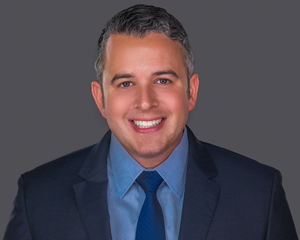Revision surgery is a corrective procedure performed to fix problems caused by a previous operation. While some follow-up procedures are medically expected, such as replacing implants years after they are placed, others arise from preventable mistakes. When errors that occur during diagnosis, surgery or aftercare lead to complications, patients may need additional operations that could have otherwise been avoided.
This can result in patients often dealing with longer recovery times, missing work and being faced with higher medical bills, in addition to the emotional strain of going through another procedure. While not every complication signals malpractice, the law recognizes a difference between unavoidable risks and negligent mistakes. When revision surgery is needed because of errors in care, it may form the basis for a medical malpractice claim.
How Medical Malpractice Leads to Revision Surgery
Revision surgery is often necessary when errors occur during the original procedure. Surgical mistakes such as improper techniques, misplaced implants, or even leaving surgical instruments inside the body can cause lasting harm that must be corrected through an additional operation. These errors typically go beyond expected risks and point to negligence in the surgical process.
Problems may also arise before the first surgery even takes place. If a doctor fails to properly diagnose a condition or neglects critical pre-surgical planning, the procedure may be performed incorrectly or on the wrong basis, leaving the patient worse off than before. These failures can create complications that require revision surgery to restore proper function or health.
In some cases, malpractice occurs after surgery through inadequate post-operative care. Patients may develop severe infections, suffer complications from poor monitoring, or be discharged too early without proper instructions. When these lapses in care lead to harm, revision surgery may be the only option to correct the damage and protect the patient’s health.
Pursuing Legal Recourse
To pursue a malpractice claim after revision surgery, patients must establish the core elements of negligence, which include proving:
- The doctor or hospital owed a duty of care
- Duty was breached through substandard treatment
- The breach directly caused harm, and the patient suffered damages as a result
While revision surgery often serves as strong evidence that the initial procedure caused significant harm, it must still be proven that the surgery was necessary because of negligence rather than ordinary complications. Medical records from both the original surgery and the revision procedure are essential to show what went wrong and why another operation was needed.
Expert testimony may also be used to explain how a competent provider would have acted differently. This type of evidence helps distinguish malpractice from unavoidable risks and strengthens the patient’s claim. If successful, patients may recover compensation for a range of damages. This can include reimbursement for medical bills and revision costs, as well as lost wages from time away from work and non-economic losses such as pain, suffering, and emotional distress.

